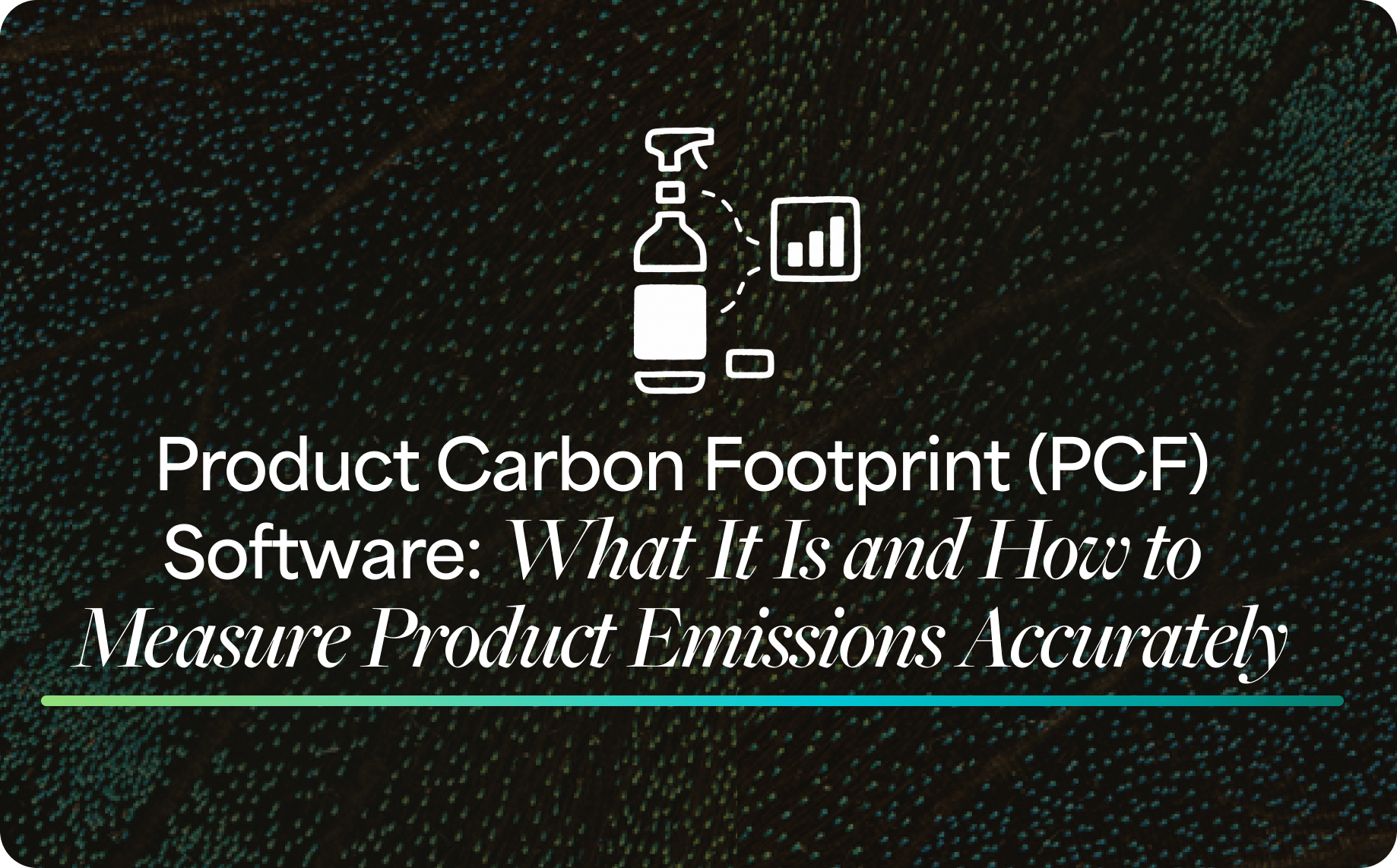In case you missed it, Unravel Carbon and our partner Nectar held a webinar to talk about the way digital tools can help sustainability teams streamline emission measurement processes. This piece will provide some added insights, and we’d encourage you to watch the full discussion below.
For many companies, the process of collecting sustainability data and measuring emissions can get pretty complex. It’s often time-intensive, involves many stakeholders, and requires a ton of manual work.
However, with the help of AI, these tasks can be handled a lot more efficiently.
In particular, sustainability teams can use AI-powered solutions to determine what information is truly material, centralize and categorize data, set carbon reduction targets, and pinpoint specific changes to implement.
Below, we’ll take a closer look at the obstacles that businesses tend to face when gathering data and measuring emissions, and how AI can be leveraged in both areas.
Data collection challenges
A major issue that companies encounter before actually measuring their emissions is data consolidation.
If an organization doesn’t have an established process to centralize data from departments such as HR and Finance, it leaves their team investing a lot of time into collecting scattered and unstructured data.
Relying on fragmented and manual methods such as digging for information in emails and Excel sheets are likely to be error-prone, and can affect the reliability of the results that business decisions may rely on.
When data isn't consolidated in a standard structured format, companies will struggle to analyze it for completeness and correctness. This may lead to resorting to a less robust methodology where estimates and assumptions have to be made to compensate for the lack of good quality data.
Data collection solutions
One of our partners, Nectar, helps address these challenges by automating the collection of utility data.
Instead of having to go through stacks of utility bills and manually extract information, Nectar connects directly to your utility providers, and uses AI to extract billing information and structure it for sustainability reporting. Their AI-driven tools expedite the preparation of clean, categorized, and analysis-ready data for emissions calculations.
As an example, with the gathered information, carbon management platforms like Unravel Carbon can consolidate your electricity information into a single source of truth. Our platform allows you to input your electricity data via webforms, upload in bulk via Excel, or through an integration with other software you might be using.
We recognize that data can come in different forms, and with varying degrees of granularity. For the instance of Scope 2 emissions from electricity consumption, you may have data as specific as consumption in kilowatt-hours or as general as amount spent in your monthly bill.
.gif)
Due to these types of discrepancies, it can be tricky for teams to effectively manage their emissions accounting. At Unravel Carbon, our platform is designed to help companies address the aforementioned issues. In particular, with the help of AI, we provide organizations with the ability to handle and make sense of emissions data, while adapting to your data availability.
Emission measurement challenges
Next, when it comes to using the data you’ve collected to measure emissions, there are some common hurdles that companies often deal with.
For example, when establishing a baseline and quantifying your emissions, one of the initial bottlenecks is that the GHG Protocol can get fairly intricate. It's subject to interpretation and has many components that have different data and calculation requirements.
From a calculation perspective, measuring emissions is a very data-intensive exercise. It requires companies to convert their financial and activity data into emissions estimates, using emission factors that are based on the available data.
While this may sound confusing, the key takeaway is that different types of data require using different types of emission factors.
Also, since data quality varies across business units, you need a lot of flexibility when it comes to both the reference data and methodologies that you use.
Additionally, for a higher quality and more granular emissions measurement that is actionable, you would require magnitudes more input and reference data in order to complete your emissions inventory.
This is because you’d need a lot more data to conduct measurements and calculations at the increased level of granularity. For instance, instead of using a single emission factor for all "fruits," you’d need emission factors for every single fruit, which could number in the hundreds.
This can be challenging for sustainability teams to manage, but also where AI can help.
Emission measurement solutions
With the above sorted, the collected data—in its various forms—can be centralized for processing through Unravel Carbon’s carbon engine.
Once the data is in, our engine uses AI and machine learning to classify transactions, produce emission estimates, and with a detailed audit trail as well.
This forms the foundation for you to do emissions analysis, hotspot identification, benchmarking and streamlined reporting with a lot less manual intervention from sustainability teams.
With Unravel Carbon's extensive database of emission factors—coupled with our AI matching capabilities—we want to help companies with high quality data reach high levels of granularity and accuracy in emissions calculations.
This detailed emissions data is crucial for decarbonization because it allows you to identify and address specific emissions hotspots more effectively, and better forecast the impact of decarbonization efforts.
Conclusion
By leveraging AI for data collection and emissions measurement, sustainability professionals can invest more of their efforts into impactful decarbonization projects, rather than tedious manual tasks.
The automation facilitated by AI streamlines a broad range of processes, thereby saving time, enhancing accuracy, and ultimately empowering organizations to achieve their sustainability goals more efficiently.
Interested in learning more about how Unravel Carbon can help you leverage AI for collecting data and measuring emissions? Get in touch with us here.



.jpg)

.jpg)